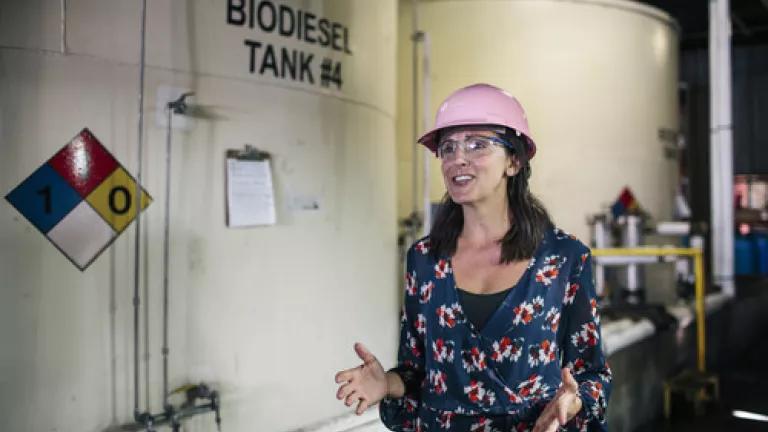
California air pollution officials voted unanimously today to approve and re-adopt the state's Low Carbon Fuel Standard that has been in place since 2009 and requires the oil industry to cut the carbon-intensity of transportation fuels by 10% by 2020. The vote sends a strong rebuke to the oil industry that has fought to stop the standard through failed legal attacks and a well-funded campaign propping up over 15 fake, front-groups. The readopted standards are strongly supported by clean energy fuel producers, technology providers, utilities, mainstream and small businesses, consumer groups, scientific groups, environmental, and health-based groups.
The LCFS is Critical to Meet California's Clean Energy and Climate Goals
When it comes to carbon pollution, California's transportation sector is a behemoth--responsible for nearly forty percent of the state's carbon emissions. With 93% of our transportation fuels still based on petroleum fuels, the oil industry will have an increasing responsibility to do its fair share to invest and reduce those emissions. We've run the numbers, California agency officials have run the numbers, numerous independent studies and national labs have run the numbers - we can't really meet state energy and climate goals without lowering the carbon-intensity of transportation fuels.
California's Affirmation of the Standard Means Increased Certainty for Clean Fuel Businesses to Invest and Expand:
The re-adoption of the LCFS sends a powerful signal to companies investing and producing cleaner fuels. Here in California, for startups like San Diego's New Leaf Biofuels that recycles used cooking oil to produces biodiesel, that's a critical signal.
As explained in a feature by Uplift California, a project of The Greenlining Institute, New Leaf's CEO, 38-year-old Jennifer Case has had many sleepless nights wondering if she would be able to stay in business given the regulatory uncertainty created by the oil industry lawsuits. "New Leaf lives and dies by the state and federal policies that allow biofuels to compete with fossil fuels," explains Jennifer. "We're providing these jobs in an industry that's new and exciting but you have so much on your shoulders."
Today's affirmative vote helps end that regulatory uncertainty and will enable clean fuel companies to expand.
Jennifer Case, 38, is the chief executive officer for New Leaf Biofuels in San Diego. New Leaf started in 2006 as a result of a federal tax credit signed by President George Bush in 2005. (Reproduced with permission from The Greenlining Institute)
Oregon Also Moves Forward
Today's vote quickly follows yesterday's ruling by a federal court dismissing a lawsuit by the oil industry attempting to block the Clean Fuels Program adopted by Oregon. The federal court sided with the state of California and environmental group petitioners, including NRDC. Oregon is looking to adopt Phase 2 of their Clean Fuels Program over the next several months, expanding a regional market on the West Coast for clean fuels.
